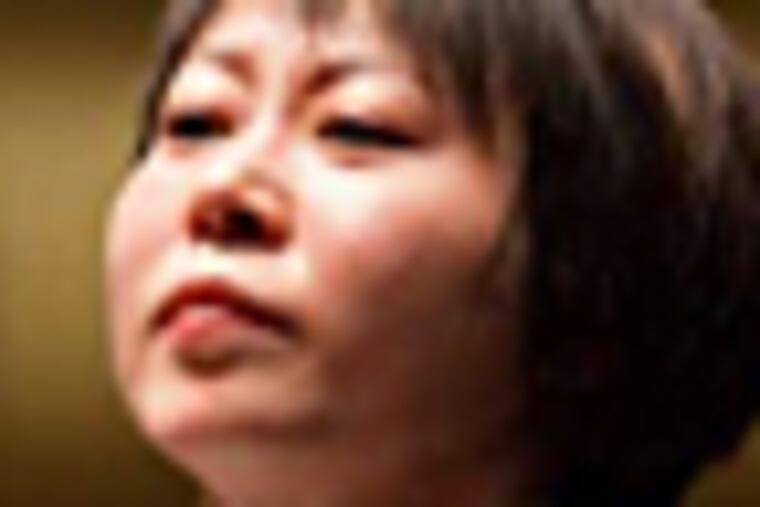Zhang conducts Philadelphia Orchestra in a terrific Beethoven 9th
Perfect weather. A terrific Beethoven 9th by the Philadelphia Orchestra. What more does one need in life?Though any number of the orchestra's season openers at the Mann Center for the Performing Arts have been perfectly pleasant, Wednesday's was one to remember with the debut of Chinese conductor Xian Zhang, who proves that authority need not be contingent on gender, nationality, or physical stature. My limited exposure to the diminutive Zhang, who rose through the ranks of the New York Philharmonic's conducting staff before the increasingly international career that she has now, suggests that she is a fundamentally reflective musician, looking beyond the flashy animal energy of a Tchaikovsky symphony for the entrancing complications underneath. However, conductors don't usually have the time in summer concerts to hone an individualistic vision of a masterpiece; the main challenge is to energize the orchestra, to keep it emotionally present as consistently as possible. And she did.

Perfect weather. A terrific Beethoven 9th by the Philadelphia Orchestra. What more does one need in life?
Though any number of the orchestra's season openers at the Mann Center for the Performing Arts have been perfectly pleasant, Wednesday's was one to remember with the debut of Chinese conductor Xian Zhang, who proves that authority need not be contingent on gender, nationality, or physical stature.
My limited exposure to the diminutive Zhang, who rose through the ranks of the New York Philharmonic's conducting staff before the increasingly international career that she has now, suggests that she is a fundamentally reflective musician, looking beyond the flashy animal energy of a Tchaikovsky symphony for the entrancing complications underneath. However, conductors don't usually have the time in summer concerts to hone an individualistic vision of a masterpiece; the main challenge is to energize the orchestra, to keep it emotionally present as consistently as possible. And she did.
The performance leaped off the stage with such immediacy (thanks partly to the sound engineer) that even the potato chip munchers across the aisle were drowned out. Besides, the performance's rhythmic muscularity tapped into the substance of a symphony that exults in the concept of universal brotherhood.
Yet the performance had its little miracles. Throughout, the continuity was particularly strong because Zhang so clearly showed you where the music's hinges are. In the slow movement, the music's Olympian repose was captured in full, but with an unusually strong rhythmic pulse that wedded it to the rest of the symphony. Later, when hope gives way to shattered disillusionment, treble instruments were beautifully phrased, but what made the passage speak was the implacable insistence she gave to the underlying rhythms.
When the famous "Ode to Joy" theme arrived in the final movement, the orchestral color unfolded dramatically on a second-by-second basis. And how often does every member of the chorus (this one being the Philadelphia Singers Chorale, in excellent form) seem to deeply believe the words they're singing?
Beethoven's writing for the quartet of vocal soloists is almost impossible to get right on the first try and can make singers sound like they're having a bad day when they're not. So let's just say that Othalie Graham, Margaret Mezzacappa, Zachary Borichevsky, and Luis Ledesma did as well as one could hope amid the musical tornado around them.
Bach's Concerto for Two Violins and Orchestra began the concert with old-school slowish tempos and thick textures that made it a suitable companion to Beethoven. The capable soloists (both principal players in the orchestra) were interestingly contrasted — Juliette Kang being a classic Juilliard School?/?Dorothy DeLay student with an intensely bright tone, Kimberly Fisher with a darker, deeper sound. Both were unusually collegial, supporting each other when necessary and, when appropriate, staying out of each other's way. In some ways, the piece was actually a triple concerto, with harpsichordist Davyd Booth maintaining a strong harmonic foundation.